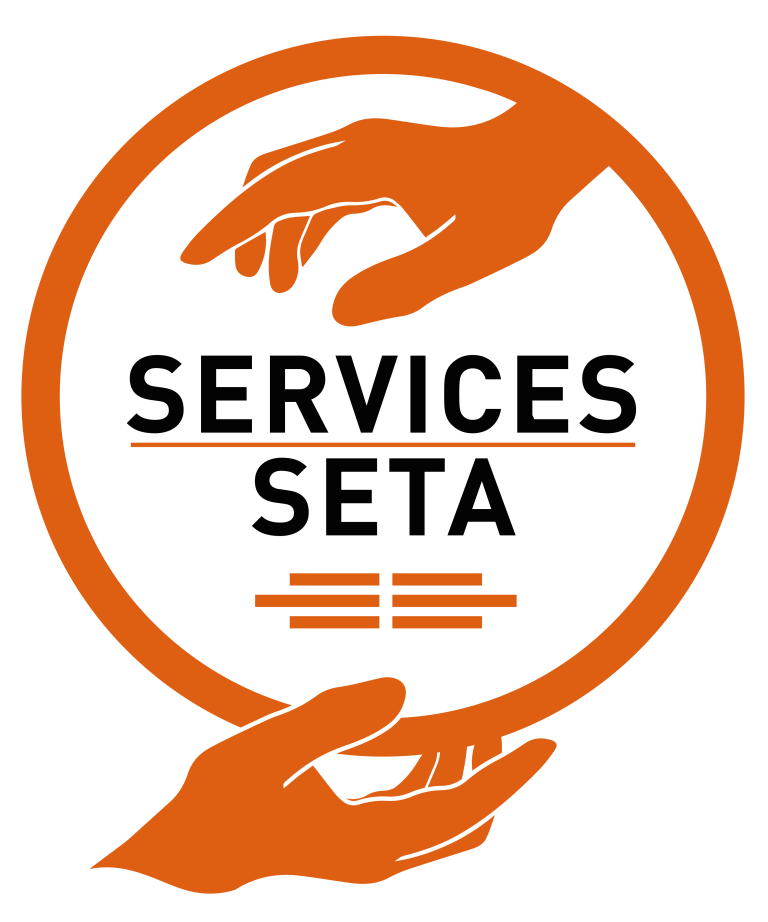Employers
Skills development is considered to be the key to productive employment around the world. It boosts productivity, private sector growth, job creation, inclusive economic growth, and poverty reduction. To fight poverty sustainably, the economy needs to diversify and shift to high-productivity sectors. This will happen when we have a more skilled and capable workforce that attracts foreign and domestic investment.
A skill is developed through formal, informal, and non-formal learning and training. It is about helping people get fully and productively involved in life, and adapting to changing markets and economies. To do that, learners need a high-quality lifelong learning system and a supportive environment. The Services SETA establishes learning programmes such as learnerships, artisan development programmes, candidacies, recognition of prior learning (RPL), internships, bursaries, adult education and training (AET) and apprenticeships for unemployed and employed learners.
Employers have a lot to gain from participating in the skills development system. The implementation of skills development initiatives can only work with employers’ full involvement.
Employers get tons of benefits:
- Increased productivity: Employers can improve their productivity and competitiveness when their employees are trained and skilled.
- Employers contribute to the economy by skilling their own employees as well as unemployed youth.
- Economic growth: The economy can only grow when there is a pool of skilled employees in each sector of the economy.
- Incentives: Employers can claim incentives such as tax rebates and increase their transformation and BBBEE scores.
1. There are incentives for employers who train unemployed and disabled people.

Mandatory Grants
Mandatory grants are available to employers in the sector. In South Africa, any employer with a payroll over R500,000 must pay the skills development levy to the South African Revenue Services (SARS).
Employers have to pay 1% of their salary bill to SARS. SARS assigns the SDL to the relevant SETA. Employers can claim back 20% of their total SETA contributions by submitting their Workplace Skills Plans (WSPs) and Annual Training Reports (ATRs). The Mandatory Grants refund in turn can be reinvested back into skills development by the employer.
Every year, the application window opens between December and April. We advertise the application window on our website and social media. To help employers comply with the requirements, we also offer capacity-building workshops.
2025 – 2026 Mandatory Grants Notice/Workshop dates
MG_ANNEX_03_MANDATORY GRANT FORMS
MG_ANNEX_05_25-MANDATORY GRANT EMPLOYEE TEMPLATE
MG_SOP_ANNEX_MANDATORY GRANTS_CODE SHEET
If you have any queries kindly mail the team at wspdocs@serviceseta.org.za or reach out to them below.
Name and Surname
Ria Jordan
Lindy Tau
Memory Madingwane
Florence Moeketsi
Masa Manyama
Tlhompo Tsheole
Position
Manager
Senior Officer
Senior Officer
Officer
Officer
Officer
Contact Number
011 276 9679
011 276 9686
011 276 9645
011 694 8653
011 276 9798
011 694 8674
Email Address
wspdocs@serviceseta.org.za
wspdocs@serviceseta.org.za
wspdocs@serviceseta.org.za
wspdocs@serviceseta.org.za
wspdocs@serviceseta.org.za
wspdocs@serviceseta.org.za
Discretionary Grants
Getting Started with Discretionary Grant Applications
Services SETA administers discretionary grant funding that supports the organisation’s mission and priority qualifications, according to its sector skills plan. The sector skills plan determines what skills the industry needs to compete globally.
Discretionary grants are awarded through a competitive process for specific sectors including:
- Levy-paying employers
- Public and government institutions
- Institutions of Higher Learning,
- Local authorities and tribal organisation
- Non-profit organisations,
- Other entities (e.g., community-based organisations, public agencies, etc.).
Non-SETA Funded Learning Programmes
An employer who trains employees out of their own pocket must first certify the qualification as a “learnership” with the SETA. The Services SETA should have registered the qualification as a “learnership” with the QCTO. Qualifications can be registered as either a normal qualification or a learnership. Employers are able to claim a tax rebate on the entry and exit of a learner on a learnership.
Non-SETA Funded Learner Registration Process
As already indicated elsewhere on this website, registering with a SETA for the purpose of undertaking your own in-house funded training programmes has many benefits.
The Services SETA’s Non-SETA Funded Learner Registration application process is open throughout the year to employers. The employer needs to be a Services SETA levy paying member or as a non-levy paying member, fall within the scope of the Services SETA.
To apply as the lead employer, the learners must be on the employer’s payroll/ stipend paid by the employer for unemployed learners. Employers must submit their Employer Funded Learning Intervention applications on the Learner Management Information System (LMIS).
The application must be submitted on the Services SETA LMIS system here.
It is important to note that the employer is responsible for the implementation of the learning Programme at the workplace/site. Therefore, the LMIS is designed for the employer to apply for Workplace Based Learning Programme as the onus remains on the employer for the implementation of the learning programme.
In accordance with the Workplace Based Learning Programme Agreement Regulations, 2018 of the Skills Development Act, 1998, all learning programmes that requires experiential training to be undertaken at a workplace must be registered with the primary SETA of the employer. It is therefore imperative that all Services SETA employers register the below learning programmes to adhere to the requirements of the Act.
Inter-SETA Transfers
A company can be transferred from one SETA to another through an InterSETA transfer. The following situations may warrant such a transfer:
In the case of a company being incorrectly registered with a SETA, wherein the main business activity is not aligned with the SETA’s industrial scope.
When the company’s main commercial activity has changed since its previous registration with SARS, it may find a better industrial scope fit in a different SETA than the current one.
In the case of employers who fall under the jurisdiction of more than one SETA. Employers may request to transfer to another/most appropriate SETA for the following reasons:
- The composition of the workforce
- Amounts paid or payable to different categories of employees
- Different employee categories have different training requirements
- How to transfer from another SETA to the Services SETA:
- The employer must submit the InterSeta Transfer Application form to their currently registered SETA.
- How to transfer from the Services SETA to another SETA:
- The employer must submit the InterSETA Transfer Application form to Services SETA
- The SETA concerned must approve the application and forward it to the Department of Higher Education and Training (DHET).
• DHET will verify the request and send it to SARS, which will process the change
If the relevant SETA declines the application, the employer can dispute this with the SETA in question.
If the transfer is delayed, it can be escalated to DHET.
